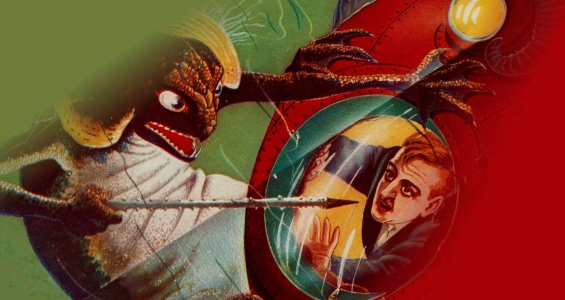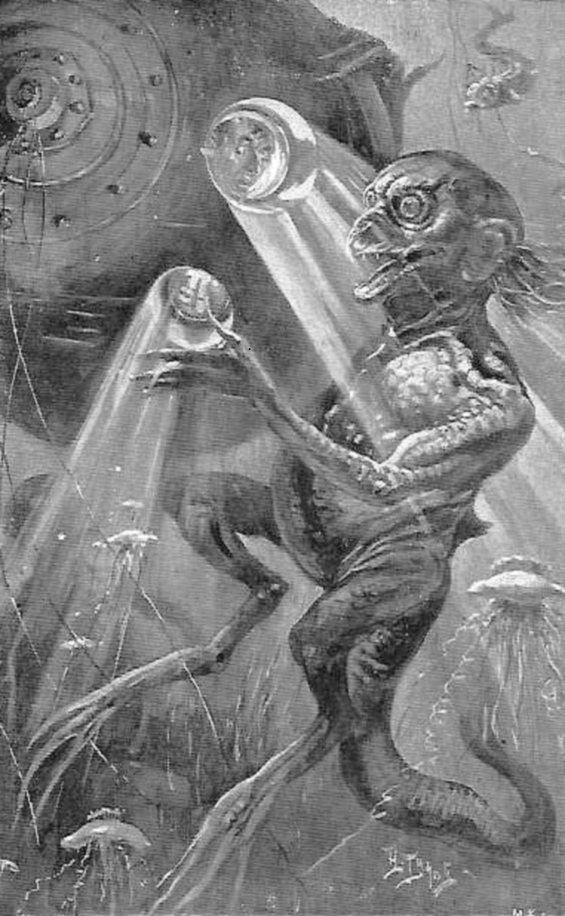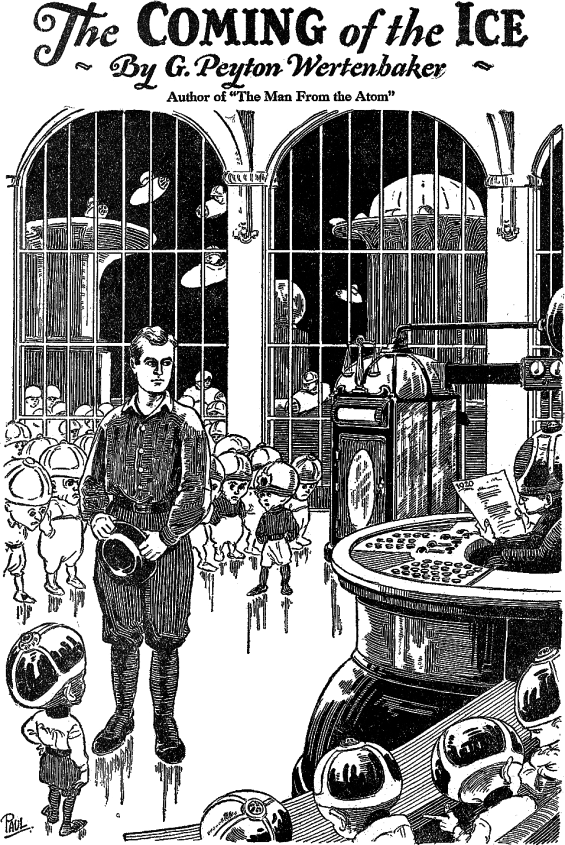
 The SFFaudio Podcast #220 – The Machine Stops by E.M. Forster; read by Elizabeth Klett (for LibriVox). This is a complete and unabridged reading of the story (1 hour 13 minutes) followed by a discussion of it. Participants in the discussion include Jesse, Professor Eric S. Rabkin, and Mr. Jim Moon.
The SFFaudio Podcast #220 – The Machine Stops by E.M. Forster; read by Elizabeth Klett (for LibriVox). This is a complete and unabridged reading of the story (1 hour 13 minutes) followed by a discussion of it. Participants in the discussion include Jesse, Professor Eric S. Rabkin, and Mr. Jim Moon.
Talked about on today’s show:
Novelette or novella, novellini?, E.M Forster wrote some Science Fiction?, genre boundaries, H.G. Wells, adventure, horror, The Time Machine, a critique of English society, dystopias, diegesis, a didactic approach, The War Of The Worlds, a bogus bifurcation of the body and the spirit (or the mind), ambiguous possibility, the “Machine” of the titles, Morlocks and Eloi, a reversal, a complement, prophetic vs. appropriate, looking through my blue plate, this book is the biggest existential critique of my lifestyle, it was lovely to meet Jim and Eric, a caricature and a critique, blackberry season, a swaddled lump of flesh, a curiously intrusive narrative technique, a fable, author backchat, in C.S. Lewis’ Narnia, J.R.R. Tolkien, lampshading, breaking the fourth wall, an aural phenomena, a fable, a parable, philosophical scenarios, Plato’s Myth Of The Cave, The Republic, Socrates, ontological imaginary equivalents, The Metamorphosis by Franz Kafka, the narrator isn’t exactly human, “back chat”, man is not necessarily the measure of all things, empiricism vs. rationalism, the unanswerable questions of the stars, everyone is a lecturer in the future, “second hand ideas”, the French Revolution not as it was but as it might be in our society, Alexander The Great’s monstrous rampage through Asia, “the juice of the individual human experience”, we have many books, books as experience generators, Ion, J.R.R. Tolkien, “there is a muse”, the rhetor, aiming out of the subterranean, why are we obsessed with essays?, SAT style essays, a quasi-Aristotelian view of happiness, what does a happy horse look like?, fleet fleets make happy shipwrights, happiness verb, man is not an animal like the others, the body doesn’t matter, man is a mind, big fat babies, the wealthy vs. the working, the bloom of Victorian society (men in sheds), a satire of academia, the Logical Positivists, natural deductive logic, Mr. Jim Moon does a lot of research, rehashing, Terry Jones, Christopher Columbus, Nathaniel Hawthorne, an unexpected continent, the North-West Passage, telling powerful and relevant, the use of the word “idea”, “forms”, Rene Descartes, interpenetration, Orion, the hunter giant,” when you give a bad podcast do you ask for euthanasia afterwards?”, you’re not there for the characters, a very erudite story, Vashti (from the Book of Esther), Purim, the worst possible kind of mother, “the book”, unmechanical, religion, what is the machine exactly?, is the machine Capitalism? Google? Wikipedia? The Internet? Communism?, the beds only come in one size, the six sided cell, a hive society, command societies, totalitarianism, “machines are in the saddle and ride mankind”, the trains make us run on time, a network of machines is the Machine, a perfected machine disallows individuality, “In the dawn of the world our weakly must be exposed on Mount Taygetus”, the worship of Helios, Ancient Greece, the homeless don’t die, despite being set in the future this is a danger in human existence, a perfect social system (utopia), an inversion of the ancient Spartan technique, not to go against the Greek, an inversion of the Garden of Eden story, in real life, a very disturbing story, a hopeful ending, a white snout, sexual competition as in Dracula, have we learned our lesson?, a passion for connection, Wall-E, infantilized adults, vomitorium, Logan’s Run, We by Yevgeny Zamyatin, an anti-romantic Eden, “they give me no ideas”, “metal blind”, Brave New World by Aldous Huxley, E.M. Forster invented Skype?, pneumatic tube, Paris, Looking Backward by Edward Bellamy, the business of Science Fiction isn’t technological prediction, a totalizing synergy, the blue slates, an Edwardian future, the machine religion, humans enslaved by their own social attitude, Cory Doctorow, the mending committee doesn’t know how to fix anything, personifying and deifying the machine, Voltaire’s “The better is the enemy of the good.”, Protagoras, the Sophists, a sophist editorial cartoon, give me money and pay attention to me, an incredibly weak story with spectacularly fruitful ideas, what does it mean to say “I read something and liked it?”, The City And The Stars by Sir Arthur C. Clarke, its left to us to ponder some very deep questions, we’re not at The City And The Stars tech yet, the 1970s and the 1990s was the time for Brave New World, complementary drugs, the work and the context we read them in, recycling of knowledge and group consensus, exciting and relevant for our time, where and when we are when we first read something is important, Against The Fall Of Night, The Catcher In The Rye, To Kill A Mockingbird, Have Space-Suit, Will Travel, Little Brother, the civilized society and the outer savage, Dr. Eric & Mr. Moon.


Posted by Jesse Willis





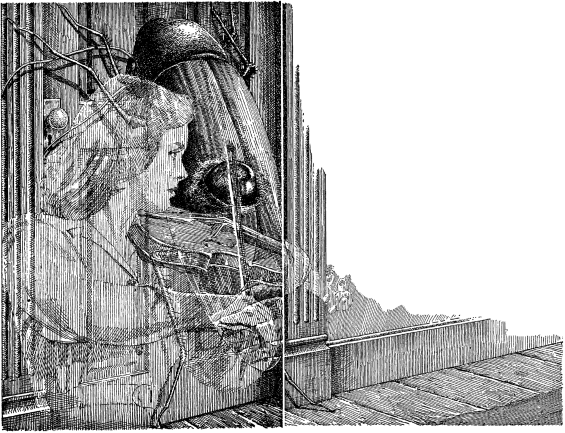

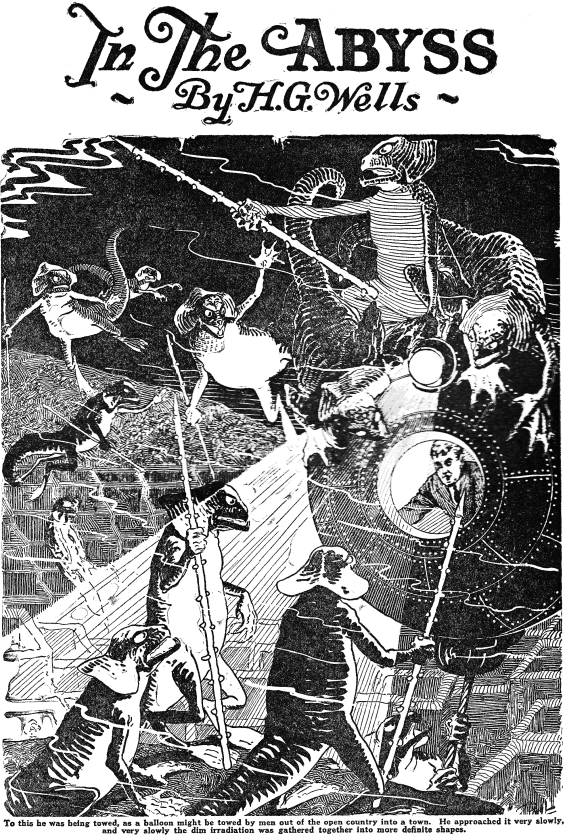
 In The Abyss
In The Abyss